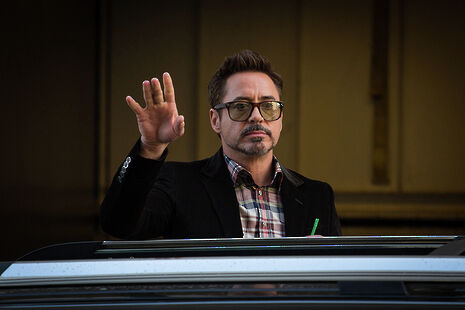The road to sobriety: being a ‘dry drunk’
In the third part of the series, our recovering alcoholic reflects on the importance of asking for help

Hello again. Last week I spoke about how I came to realise I was an alcoholic, this week I want to talk about getting sober and what that entails.
I did not want to stop drinking; I didn’t even think I had a problem. My problem was life and my illness that consumed it. Of course I drank – I was 20, who doesn’t drink at that age? Plus, as I mentioned last time I wasn’t that bad – my drinking bouts were scarcely different to my friends. But my life was awful, I won’t go into what I had lost again, but suffice to say after four years of trying to drink the way I wanted to and trying to order my life the way I wanted, it had come to a great crashing standstill.
So finally I asked for help. Last week’s Union celeb Robert Downey Jr. once said, “Getting sober is easy it’s asking for help that is the hard part.” I don’t know if I agree wholly with that but I know what he means. We addicts are atrocious at ceding control and admitting that someone else might have a better perspective. We like to think that if the world was just slightly different we would be completely fine.
So yes, asking for help goes against our nature, it certainly went against mine, but it was my only option. I called up the director of my old rehab: quickly it was agreed I would move into the facility’s house in North London with several other addicts. It was a bleak scenario but with no other options, I went home and packed.
Putting down booze is just the start of the story. I’ll always remember the date – 2nd March 2012 – but there is so much more to sobriety than quitting. As I have written previously, if we addicts put down our addiction, we need to find a new way of treating our illness. Otherwise what we have been medicating; anger, jealousy, self-pity, come back to the fore. I honestly think that I was at my most obnoxious and damaging when I wasn’t drinking but was without a new medicine. Dry but not yet sober, or being a ‘dry drunk’ is how this condition is often described. Thus getting sober initially was initially terrifying and frustrating: without a new medicine life seemed almost worse than the drinking I was trying to escape from.
But things did change, slowly, especially when I started meeting with other addicts. An addict, unlike anyone else in the world, can understand what is going on in another addict's head. This gives us a special bond with each other; I have met addicts all over Europe and from all over the world and wherever I am it always feels like I immediately have a friend.
This might sound soppy, but I had previously spent my life thinking I was meaner, less pure than everyone else. I had obsessions and fears that wouldn’t go away, even with the help of alcohol. But suddenly I entered a world where everyone thought the same as me. Everyone from A-list actors to the homeless knew and understood my resentments and were willing to help.
And this is how I got sober – asking other addicts for help. This is the amazing thing about recovery: when one addict works with another both get sober. I have experienced both sides, first through the kindness of those further down the road than me, and later when I was able to give back to people who had just started the recovery process, and get a daily reminder of what it was like in the early days.
There is more to recovery sure, but this is the basic premise – one addict helping another. And so this is what I would say to anyone trying to quit drinking. Forget about lofty plans of controlled drinking, if you are an alcoholic like I am it won’t work it will just make you miserable. If you want my experience, it’s to find a recovering alcoholic, on the internet or at a meeting, and ask for help.
 News / Copycat don caught again19 April 2024
News / Copycat don caught again19 April 2024 News / Emmanuel College cuts ties with ‘race-realist’ fellow19 April 2024
News / Emmanuel College cuts ties with ‘race-realist’ fellow19 April 2024 Theatre / The closest Cambridge comes to a Drama degree 19 April 2024
Theatre / The closest Cambridge comes to a Drama degree 19 April 2024 News / Acting vice-chancellor paid £234,000 for nine month stint19 April 2024
News / Acting vice-chancellor paid £234,000 for nine month stint19 April 2024 Interviews / ‘People just walk away’: the sense of exclusion felt by foundation year students19 April 2024
Interviews / ‘People just walk away’: the sense of exclusion felt by foundation year students19 April 2024




